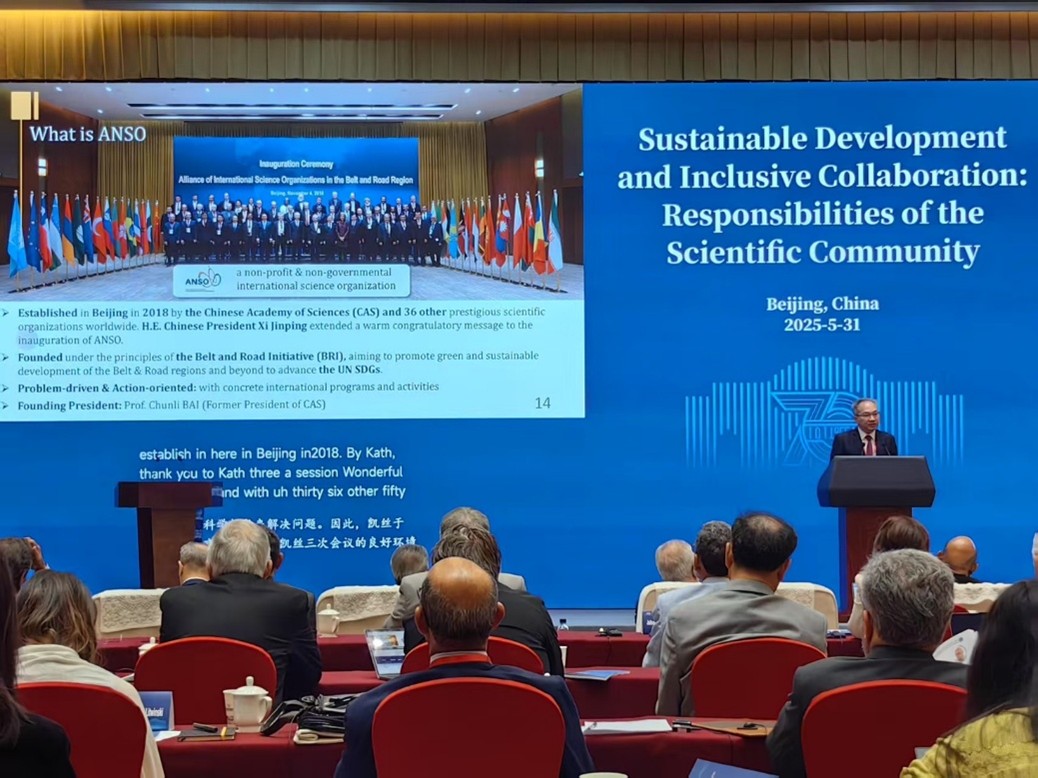Professor Dr. Sukit Limpijumnong, President of the National Science and Technology Development Agency (NSTDA) and President of the Alliance of International Science Organizations in the Belt and Road Region (ANSO), delivered a keynote address at the international symposium titled “Sustainable Development and Inclusive Collaboration: The Responsibilities of the Scientific Community.” The event was held on 31 May 2025 in Beijing, People's Republic of China, as part of the celebrations marking the 70th anniversary of the founding of the Academic Divisions of the Chinese Academy of Sciences (CASAD), hosted by the Chinese Academy of Sciences (CAS).

In his address, Prof. Dr. Sukit presented on the topic, “ANSO’s Practice in Promoting Sustainable Development and Inclusive Collaboration.” He highlighted ANSO’s key initiatives and achievements in advancing sustainable development and fostering inclusive scientific collaboration globally.
Founded in 2018 under the leadership of CAS and supported by 36 international partners, ANSO is a non-profit, non-governmental organization committed to addressing global challenges through scientific cooperation. Guided by the principles of the United Nations Sustainable Development Goals (UN SDGs), ANSO aligns its activities with the Belt and Road Initiative, focusing on sustainability, inclusiveness, and solutions-oriented research. The organization actively addresses pressing global issues such as climate change, natural disasters, food security, eco-environmental management, and emerging infectious diseases.
To tackle these complex transnational challenges, ANSO has implemented four core programs: scientific research, academic conferences, fellowships, and scholarships. These efforts have resulted in the launch of 89 collaborative research projects, the awarding of over 2,400 scholarships, and the organization of more than 100 academic events.
Through its emphasis on multilateral governance, capacity building, and strategic partnership development, ANSO has established itself as a platform for bridging geographic and disciplinary divides. Its inclusive and collaborative approach continues to play a vital role in advancing global efforts toward sustainable development.
